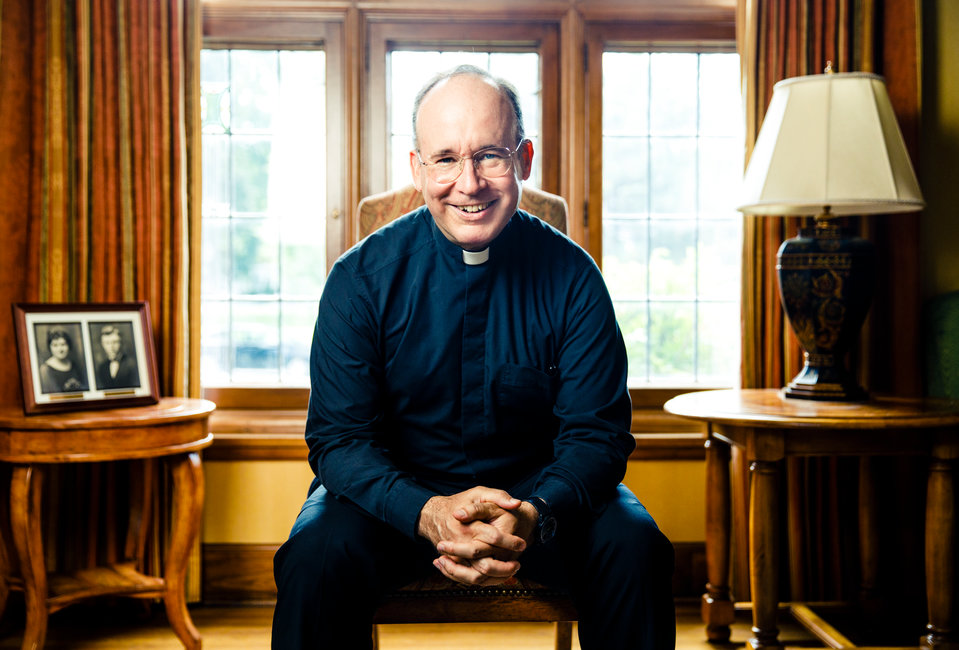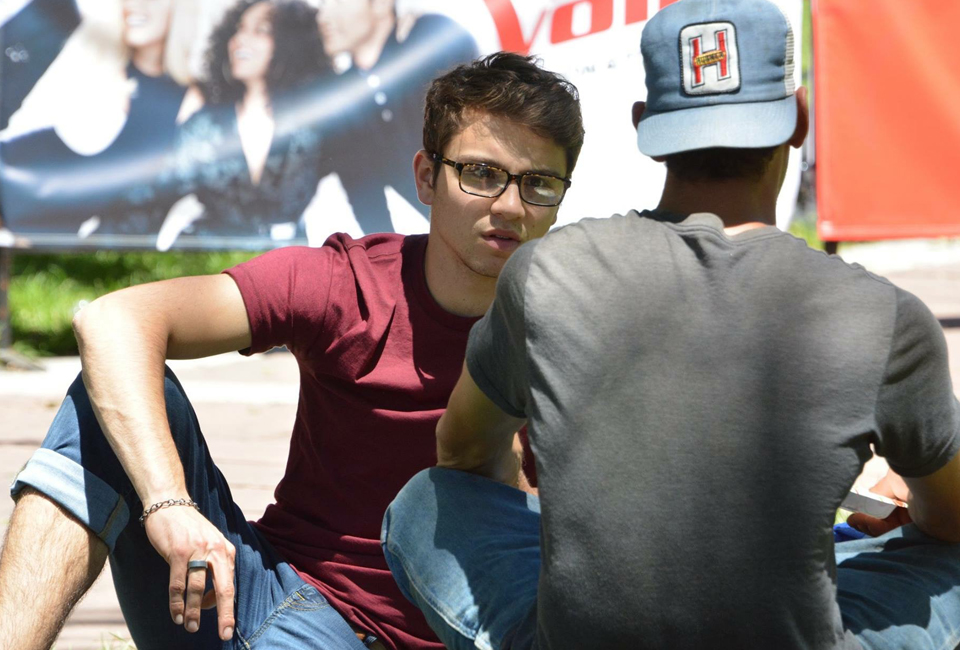Monsignor Martin Schlag, JD, S.T.D., joined the University of St. Thomas as the new director of the John A. Ryan Institute for Catholic Social Thought this fall. In addition to being an expert on Catholic social thought and business ethics, Schlag brings a greater focus on economics and law to the institute, which is an enterprise of the Center for Catholic Studies.
He holds the Rev. Alan Moss Chair in Catholic Social Thought, which is a joint faculty appointment in the College of Arts and Sciences Department of Catholic Studies and the Opus College of Business Department of Ethics and Business Law.
The institute’s namesake, Monsignor John A. Ryan, was the pre-eminent American pioneer of Catholic social thought in the first half of the 20th century and a graduate of St. Thomas and its seminary. Schlag praised the work that the institute’s founders, Robert Kennedy and Michael Naughton, have done to make the Ryan name internationally well-known and respected.
“My goal for the Ryan Institute is that it is the best-known institute for Catholic social thought in the nation and beyond, not in the sense of empirical research, but in the sense of Christian humanist reflection as it relates to social and business institutions,” Schlag said. To achieve this, Schlag plans to focus on the continued expansion of the institute’s network of international connections, particularly in Rome.
Schlag was born in New York and raised in Austria and London, and his career has crisscrossed the globe. He was ordained in 1996 by the Prelature of Opus Dei, served as regional vicar of Opus Dei in Austria from 2000-08, and was appointed monsignor in 2006. He worked as a professor for social moral theology at the Pontifical University Santa Croce, and, in 2010, became the founding director of the Markets, Culture and Ethics research center.
“With his international experience and knowledge of five languages, we are looking forward to opening doors for even greater international collaborations,” wrote Naughton in announcing Schlag’s appointment.
Stefanie Lenway, dean of the Opus College of Business, added that Schlag is a “tremendous addition.
“The mission of the Opus College is to create ethical business leaders. By combining a strong grounding in Catholic social thought with rigorous disciplinary training in economics, Father Schlag brings our students an understanding of how culture and politics influence economic outcomes and how economic tools can be put to work to promote the common good,” Lenway said.
Q&A
Schlag has a plethora of publications to his name, including a forthcoming book: The Business Francis Means: Understanding the Pope’s Message on the Economy. In it, Schlag discusses how Pope Francis is trying to promote virtuous entrepreneurship. Below, Schlag discusses business, Catholic social thought and how they fit together.
Why were you first interested in connecting business with Catholic social thought?
Catholic social thought always has to do with both a political system and an economic system. My interest is in how we can organize society so we achieve prosperity for all. How do we build institutions that create an inclusive economy? Because the worst form of poverty is to be deprived of the possibility to earn one’s own livelihood.
How would you say the discussion about the responsibilities that businesses have to the world has changed since Pope Francis became pope?
He’s quite provocative in many of his statements. He has got people thinking and talking about this. ... This has brought about a process of reflection. ... He has become a global religious leader who is respected by people of all denominations and all faiths, and I think what has happened [is people are considering], ‘You are only going for the maximization of profits? What about the human person?’
How do you see the Ryan Institute playing a role?
The Ryan Institute is an institute for Catholic social thought, and it is especially centered on business, right? But business itself is part of a society, so we always have to think of all these dimensions together: The economy can never be separated from the political system, and the political system and the economic system can’t be separated from the moral-cultural foundation of society. I want to really highlight, rethink and reflect on the institutional structures of society. What is the framework that we have to create so that we really succeed in having prosperity for all, and not just a small elite? What I also want to do is promote this program of church management, which I started in Rome, because the church will only be credible in her social teaching if she manages her own material assets well.
What does the common good mean to you?
The common good is one of the four principles of Catholic social teaching, together with human dignity, solidarity and subsidiarity. And the common good, generally speaking, is the set of conditions that commit to the integral development of the human person and of all human persons. Beyond that, it also means the good that grows through sharing. Every other good diminishes if you share it, but the common good grows through sharing. Like when we share pizza, the pizza is divided but by eating together we have created a common good. The common good is the good of being together, of living together. It’s not mere coexistence, it’s cooperation.
Why is it important for students to learn this concept?
We live together out of necessity; we need each other to survive. But that is not enough. Even if we didn’t need each other, we are naturally inclined to be friends. By nature, we are friends, so this is really important to learn during the years when one is young and still adaptable.





